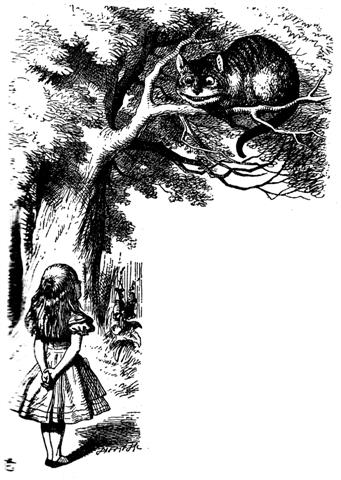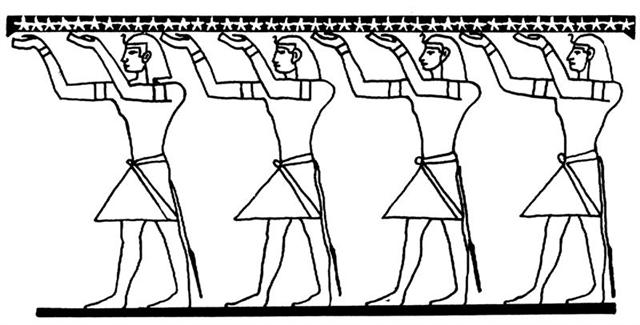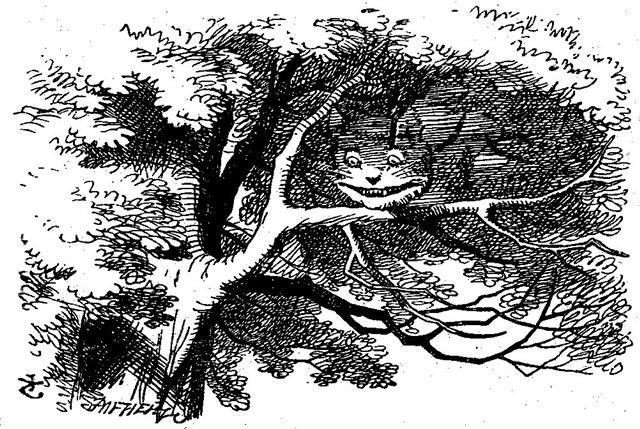Once again. When a crack opened up in the ground, it was a sign of life moving on. ... In the present context 'mouth' has an additional connotation, given that it refers in part to Heart of Earth, the deity called 'Mundo' today. This is the great Mesoamerican earth deity, the ultimate swallower of all living beings, depicted in Classic Mayan art (in the Palenque relief panels, for example) as an enormous pair of jaws upon whose lips even the feet of great lords must rest in precarious balance, and into whose throat even great lords must fall. Turning to the contemporary scene, daykeepers who visit the main cave beneath the ruins of Rotten Cane, the last Quiché capital, speak of the danger of falling into 'the open mouth of the Mundo' there, which is said to be more than four yards wide ... ... A man once said to his careless son: The world is as sharp as a knife. If you don't watch out, you'll fall right off. His son replied that the earth was wide and flat; no one could fall off. And as he kicked at the ground to show how solid and reliable it was, he ran a splinter into his foot and died soon after ... A new generation was due and one had to go in order to give life to the new little ones. ... And then the bone spoke; it was there in the fork of the tree: Why do you want a mere bone, a round thing in the branches of a tree? said the head of One Hunaphu when it spoke to the maiden. You don't want it, she was told. I do want it, said the maiden. Very well. Stretch out your right hand here, so I can see it, said the bone.
Yes, said the maiden. She stretched out her right hand, up there in front of the bone. And then the bone spit out its saliva, which landed squarely in the hand of the maiden. And then she looked in her hand, she inspected it right away, but the bone's saliva wasn't in her hand. It is just a sign I have given you, my saliva, my spittle. This, my head, has nothing on it - just bone, nothing of meat. It's just the same with the head of a great lord: it's just the flesh that makes his face look good. And when he dies, people get frightened by his bones. After that, his son is like his saliva, his spittle, in his being, whether it be the son of a lord or the son of a craftsman, an orator. The father does not disappear, but goes on being fulfilled. Neither dimmed nor destroyed is the face of a lord, a warrior, craftsman, an orator. Rather, he will leave his daughters and sons. So it is that I have done likewise through you. Now go up there on the face of the earth; you will not die. Keep the word. So be it, said the head of One and Seven Hunaphu - they were of one mind when they did it ...
... When it was evident that the years lay ready to burst into life, everyone took hold of them, so that once more would start forth - once again - another (period of) fifty-two years. Then (the two cycles) might proceed to reach one hundred and four years. It was called 'One Age' when twice they had made the round, when twice the times of binding the years had come together. Behold what was done when the years were bound - when was reached the time when they were to draw the new fire, when now its count was accomplished. First they put out fires everywhere in the country round. And the statues, hewn in either wood or stone, kept in each man's home and regarded as gods, were all cast into the water. Also (were) these (cast away) - the pestles and the (three) hearth stones (upon which the cooking pots rested); and everywhere there was much sweeping - there was sweeping very clear. Rubbish was thrown out; none lay in any of the houses ... Twice 52 = 104. Was this the measure for how much the precession had moved the fixed stars ahead since the beginning of time? No, it was rather a statement of 365 - 9 * 29 = 364 - 260 = 4 * 26 = 417 (Te Kioe Uri) - Hanga Moria One (313). One, sand. Oneone (reduplication of oone which see below), dirty, covered in soil, in mud. Vanaga. Oone, ground, soil; mud; dirty, to get dirty. Vanaga. One, sword. (Cf. oe, dorsal fin; àè, sword.) Ta.: óé, sword, lance. Churchill. Oone, sand, clay, dirt, soil, mire, mud, muck, gravel, filth, manure, dust, to dirty; ao oone, shovel; egu oone vehuvehu, mud; moo te oone, shovel; oone hekaheka, mud; puo ei oone, to daub; kerihaga oone, husbandman; oone veriveri, mud; oone no, muck, to dirty, to powder; vai oone, roiled water; oone rari, marsh, swamp; oonea, dirty T; ooneoone, sandy; oonevai, clay T; hakaoone, to pollute, to soil. P Mgv.: one, land in general, earth, soil. Mq.: one, sand, beach. Ta.: one, sand, dust, gravel. Churchill. Miro-oone, model boat made of earth in which the 'boat festivals' used to be celebrated. Vanaga. ... on the first day of the year the natives dress in navy uniforms and performs exercises which imitate the maneuvers of ships' crews ... Métraux. From the first star king (Hamal) to the next (Alcyone) there were 26 right ascension days and if each of these 10 star kings should have ruled for 26 days they would together have covered 260 days of the year. ... This connects up the present section with the beginning of the 'sacred tonalamatl', at the Spring equinox with the Mayas as with the Mexicans, and in the center of the 364-day year (52 days of which preceded and 52 followed the tonalamatl or tzolkin), ruled by its 91-day quarters by the Four Bacabs, whose quarternary repetition (in the 1820-day period) we have thus verified ...
... 1820 = 20 * 91, i.e. the bacabs circulated 5 times in the 1820-day period, 5 * 364 = 1820, and 7 * 260 also happens to be 1820. They were ruling the 4 quarters of a 364-day long year, and in the center of this year there were 260 days, the sacred tonalamatl (tzolkin) calendar, which began at spring equinox:
There were sweet potatoes - to be counted in scores (20) - and these should be connected with the Egg (Beid) and with 5 (types of bananas). 20 + 1 + 5 = 26 = 104 / 4 = 182 / 7 = 5 * 364 / 70.
... And then followed 5 varieties of banana (maika) and 12 varieties of taro [E:67-68]: ... (There were) five hundred baskets of banana shoots, a thousand baskets of taro, fifty bundles of long ti roots, and ten baskets of little kape seedlings ...
... |
|||||||||||||||||||||||||||||||||||||||||||||||||||||||||||||||||||||||||||||||||||||||||||||||||||||||||||||||||||||||||||||||||||||||||||||||||||||||||||||||||||||||||||||||||||||||||||||||||||||||||||||||||||||||||||||||||||||||||||||||||||||||||||||



